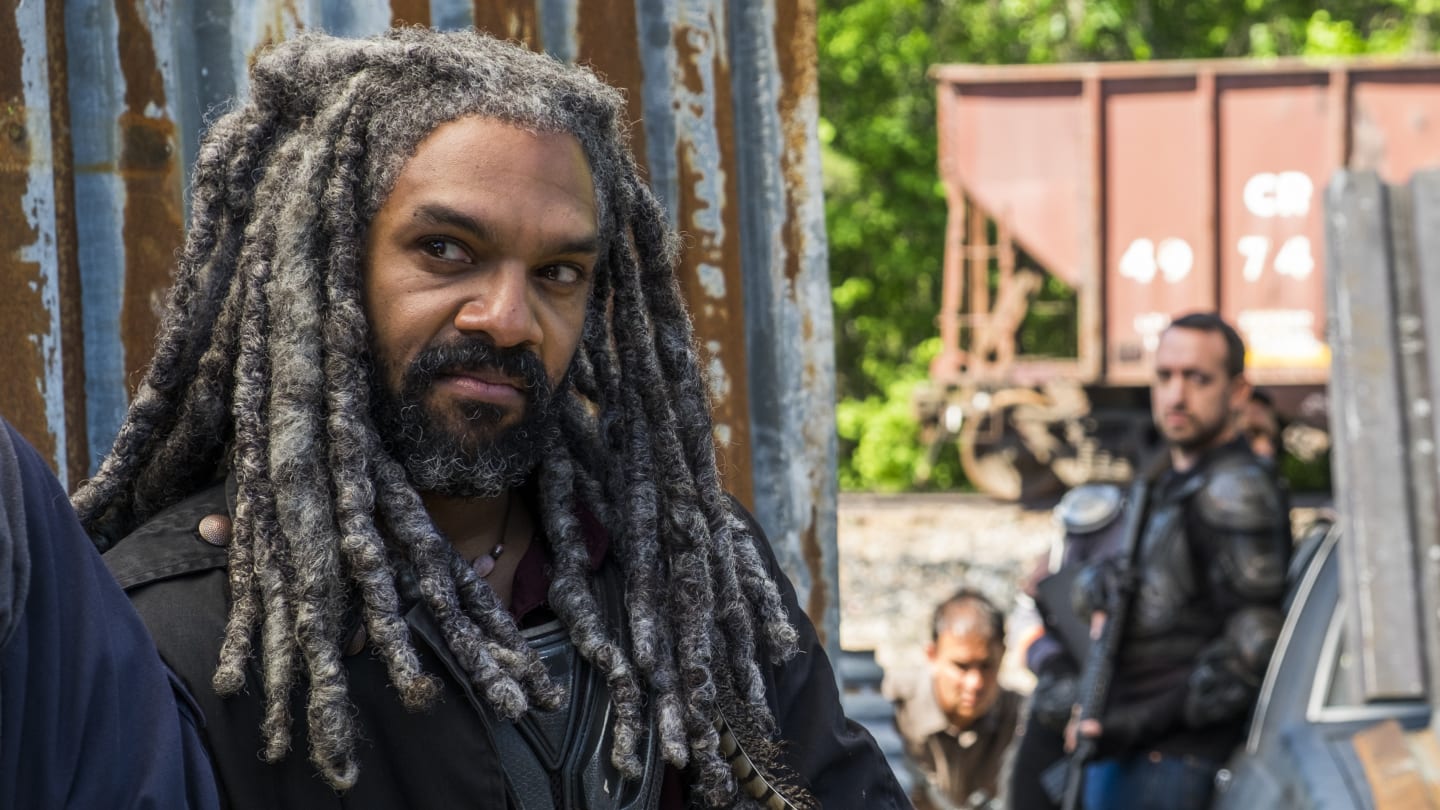“Some Guy” is the fourth episode of the eighth season of The Walking Dead. It originally aired on AMC on November 12, 2017, and it largely depicts King Ezekiel’s (Khary Payton) fall. The episode begins with a flashback of King Ezekiel preparing for battle, showing his confident and charismatic leadership.

In the “present,” however, Ezekiel is seen struggling with the aftermath of a failed attack on the Saviors, with most of his men dead. It is in stark contrast to his pronouncement: “We shall lose not one of our ranks!”
Ezekiel’s journey makes him fascinating, humanized, and likable. Injured and demoralized, Ezekiel tries to escape with the help of some of his remaining men, but they are pursued by walkers and Saviors. On the bright side, Jerry’s (Cooper Andrews) loyalty is a huge help for the character. Ezekiel is accompanied by Jerry, his loyal bodyguard (who first appeared in season 7’s “The Well”), who helps protect him from the attacking Saviors.
The episode also highlights Carol Peletier (Melissa McBride), who is on a separate mission. She infiltrates a Savior compound to secure weapons and encounters resistance. However, she’s not the sheepish woman she was back in the “Tell It to the Frogs” days of the series.
Carol helps further establish the Walking Dead episode’s themes of rescue and sacrifice. Carol manages to take out several Saviors and eventually reunites with Ezekiel and Jerry. They are later saved by Rick Grimes and Daryl Dixon, who chase down and kill the remaining Saviors transporting heavy machine guns.
One of the most poignant moments is when Ezekiel’s pet tiger, Shiva, sacrifices herself to save Ezekiel, Jerry, and Carol from a horde of walkers. Ezekial’s anguished, relatable cries of “Let me help her!” could easily register as one of the most emotional moments, not just of the season but of the entire series. It’s also interesting that the show’s themes and character development transposed into the story of a tiger!
The episode delves into King Ezekiel’s sense of responsibility and the weight of leadership. His struggle with the loss of his men and his questioning of his role as a leader is a central theme. Ezekiel goes from calling himself a “King,” to boost people’s morale and make life seem more magical, to just referring to himself as “some guy.” In contrast, in previous episodes, we’ve seen characters like Negan celebrate ego-driven, largely sadistic violence.
Characters like Carol and Shiva display immense courage and selflessness, highlighting the theme of sacrifice for the greater good. Because of these themes being so well presented, “Some Guy” received generally positive reviews from critics, in a season that previously had lackluster reviews, and not just from professional critics.
The episode fittingly was praised for its emotional depth, action sequences, and the performance of Khary Payton, who portrays Ezekiel. It’s also got something that some of the episodes before it admittedly sort of lacked: Memorable moments. It is particularly noted for the heartbreaking death of Shiva, which had a significant emotional impact on both characters and viewers, with Ezekiel’s cries of “Run, girl!” no doubt tugging on viewer’s heartstrings.
This was a pretty good (if not great) character arc episode. The events of “Some Guy” are pivotal for King Ezekiel’s character development, humanizing him beyond the point of novelty (and let’s face it: That’s largely what he was before these events). Ezekiel also offers confidence with his memorable “yet I smile” speech.
The epsiode marks a turning point in his storyline, transitioning from a confident leader to a more humbled and introspective figure. It’s not an example of The Walking Dead doing the “same old same old,” and it’s story progression with heart. The episode advances the ongoing conflict between the allied communities (Alexandria, Hilltop, and the Kingdom) and the Saviors, setting the stage for future battles and character dynamics.
“Some Guy” stands out as a significant episode in The Walking Dead series, combining action, character development, and emotional moments that resonate with the audience.




